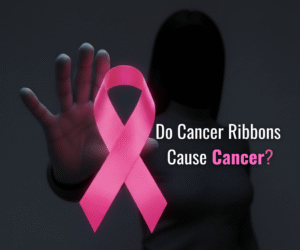Workplace Cancer: A Crisis Companies Can’t Ignore

Cancer Workplace Support
With national cancer cases set to double by 2030, proactive policies are no longer optional — they’re essential for staff and business continuity
Is your company prepared for cancer in the workplace?
According to a UK study by Working With Cancer, a staggering 96% of UK employers don’t have a formal cancer policy. The lack of local data suggests that many South African companies aren’t prepared either.
The Rising Cancer Crisis
Cancer has risen at an alarming rate among working-age adults over the past three decades. BMJ Oncology recorded a 79% increase in people under 50, which the World Health Organisation projects will increase by 77% increase by 2050. In South Africa, Discovery Health reported that claims related to cancer increased by 40% from 2012 to 2024, and roughly one in eight South African employees aged 18 to 65 is considered at risk.
The Department of Health’s National Cancer Strategic Framework (2017–2022) has failed to curb the increase in cancer, turning a health crisis into an economic one. This is worrying for healthcare resources and uninterrupted business performance. In the absence of leadership, it would benefit companies to develop their own cancer policies to protect them and their people because a healthy economy cannot be built on the back of a diseased nation.
The Employee’s Perspective: Survival vs. Livelihood

An employee’s first reaction to a cancer diagnosis is often concern for their job. Ironically, the fear of unemployment can overshadow cancer itself, because losing your job means more than just a pay slip; it means you could lose everything. Cancer is not a death sentence, and it shouldn’t be a career killer.
For companies, cancer is a business challenge, but for employees, it is about survival. People worry about being able to support themselves and not becoming a burden to their family. People shouldn’t have to choose between survival or livelihood when their energy could be better focused on recovery. The truth is that nobody can multitask in survival mode – and nobody should have to.
When I had cancer, I had five weeks of radiation that I had to reschedule to fit in with my routine. The preparation behind a single 15-minute appointment could easily consume the whole day because I couldn’t eat or drink beforehand, and was too exhausted to do anything else but sleep afterwards, but sessions could easily be delayed, postponed, or cancelled.
I recall once watching a woman anxiously rearranging all of her radiation appointments to work around her work schedule. I empathised because I realised how many of us had done the same thing. But a question lingered in my mind: Why was she rearranging her treatment around her job? Why couldn’t her job accommodate her treatment? I wondered if they even, and if so, did they care?
I would never wish cancer upon anybody, but I hope that nobody would ever have to face it alone, unsupported, or in secret. Unfortunately, many people do.
Besides being life-threatening, cancer also exhausts a person’s financial resources because, regardless of income, monthly expenses and medical costs continue to escalate. There couldn’t be a worse time to worry about financial stability, which is why companies should work towards alleviating any stress related to job security so the employee can focus on recovery.
The Employee’s Perspective: Survival vs. Livelihood
An employee’s first reaction to a cancer diagnosis is often concern for their job. Ironically, the fear of unemployment can overshadow cancer itself, because losing your job means more than just a pay slip; it means you could lose everything. Cancer is not a death sentence, and it shouldn’t be a career killer.
For companies, cancer is a business challenge, but for employees, it is about survival. People worry about being able to support themselves and not becoming a burden to their family. People shouldn’t have to choose between survival or livelihood when their energy could be better focused on recovery. The truth is that nobody can multitask in survival mode – and nobody should have to.
The Employer’s Challenge: Financial, Legal, and Ethical Obligations
While employees face these personal and financial pressures, employers face their own challenges between their financial, legal, and ethical obligations. According to HR studies, they want to be supportive, but the reality is that they still have a business to run that supports everyone working for the company. While it is reasonable to expect companies to support their staff, it is unrealistic to expect managers to deal with cancer without clear policies. Smaller companies, in particular, don’t have dedicated HR departments, and the concept of Employee Assistance Programmes (EAP) is unheard of.
Every employee with cancer deserves reasonable accommodation during their treatment and recovery. For example, instead of focusing on their cancer, focus on how you can support them until they’re ready to return. Most employers know it’s smarter to keep good people than to hire new ones, but this means very little to an employee who is uncertain about their future. Recovery could take weeks, months, or even longer, and there is no sure way of knowing until you’ve started your treatment.
The Employment Equity Act already outlines a legal framework for companies to provide reasonable accommodation, but there is nothing stopping companies from extending themselves beyond legal compliance. A person who is facing cancer is already at their most vulnerable, and the last thing they should have to worry about is if their job will still be there for them. The only answer is yes, and the best time to tell them is before they even have to ask.
Practical Steps for Companies
Nobody wants to talk about cancer in the workplace, so companies should lead the conversation before anyone asks what happens to their job if they get cancer. Companies can offer to extend their support by providing tangible benefits such as extended paid leave, salary protection, and comprehensive medical and financial assistance during treatment and recovery.
Nobody enjoys taking time off work, least of all when sick leave becomes a career liability, but companies can preempt any anxiety by addressing fears before they become a concern. There’s also the added advantage that they retain staff, reduce turnover, and maintain continuity better than companies that don’t.
What Companies Can Do:
Proactive communication is best, so address employees before they even have to ask.
Here are some steps to consider beforehand:
⦁ Define a clear cancer policy.
⦁ Train managers on legal and communication skills.
⦁ Reassure staff about rights, benefits, and future options.
⦁ Support prevention with workshops and screenings.
Leadership isn’t measured by what you say; it’s measured by how you support your people. Dealing with cancer in the workplace is not just about compliance; it’s about supporting people at their most vulnerable and putting humanity at the heart of business.
Most importantly, it is manageable.



